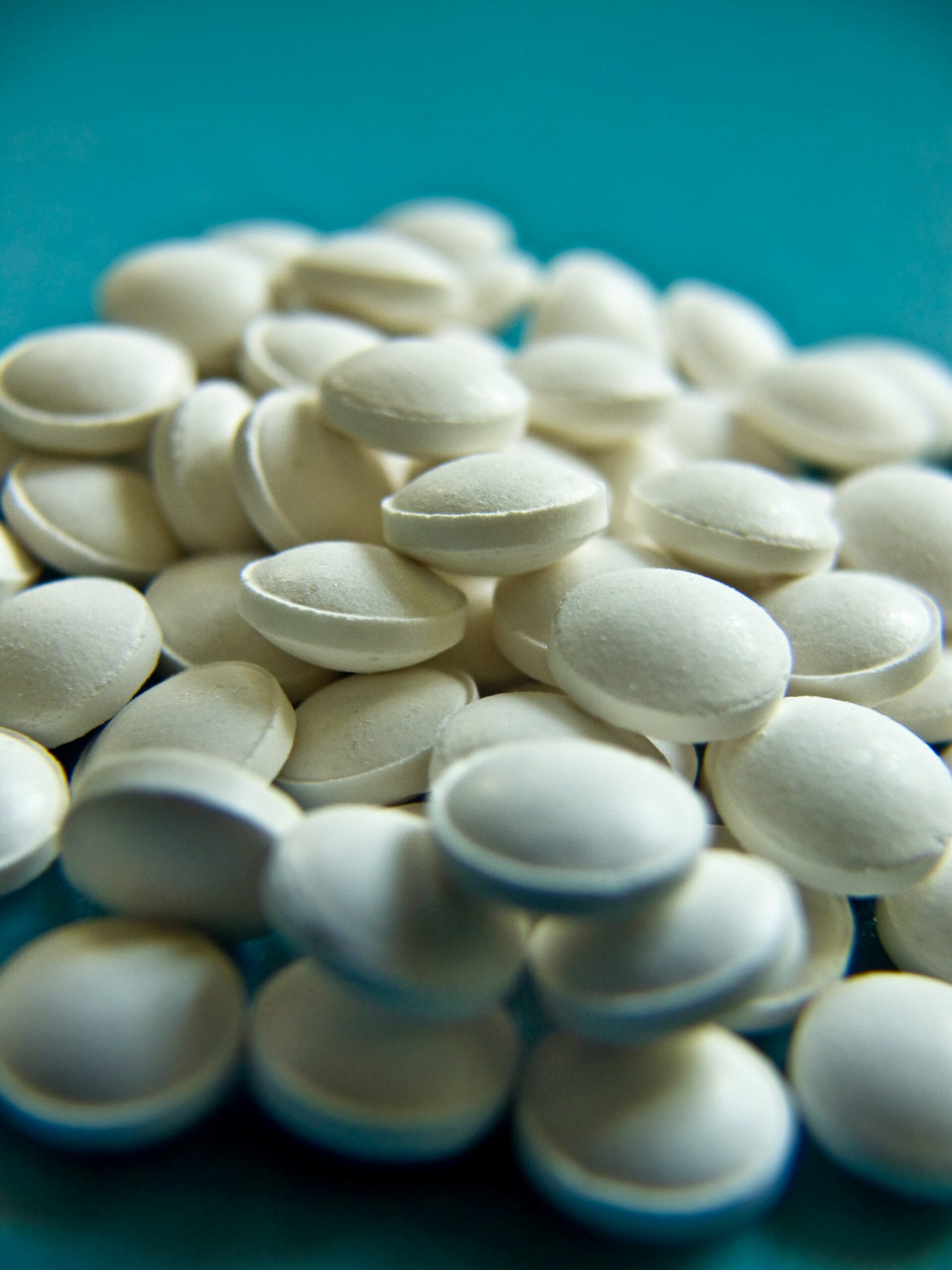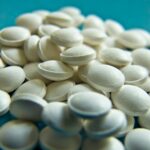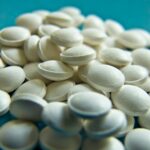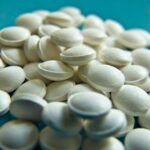In the age-old quest for sculpted physiques and Herculean strength, fitness enthusiasts have often explored the depths of nutrition, supplementation, and training methodologies.
Amidst the ever-evolving landscape of fitness fads and trends, one stalwart molecule has maintained its position as a cornerstone of muscle growth and athletic performance: creatine. Picture it as the unsung hero in your journey to a chiseled physique, the secret weapon in your arsenal for pushing your limits and redefining what your body can achieve.
In this exploration of “Why is Creatine Important for Muscle Growth” we’re about to embark on a voyage into the science, history, and practical implications of this unassuming compound. Prepare to discover why creatine isn’t just a supplement; it’s a key to unlocking your body’s true potential.
What Is Creatine?
Creatine is a naturally occurring compound found in the human body, primarily in the muscles and the brain. It plays a crucial role in the energy metabolism of cells, particularly during short bursts of intense physical activity. Here’s a bit more detail on what creatine is and where it comes from:
Chemical Composition: Creatine is composed of three amino acids: arginine, glycine, and methionine. It’s synthesized primarily in the liver and to a lesser extent in the kidneys and pancreas.
Natural Dietary Sources: While our bodies can produce creatine, it’s also obtained through the consumption of certain foods, particularly those of animal origin. Meat, poultry, fish, and dairy products are rich sources of dietary creatine. For example, red meat and fish like salmon contain higher amounts of creatine compared to other foods.
Supplementation: Due to its importance in energy production during high-intensity activities, creatine supplements have become popular among athletes and bodybuilders. Creatine monohydrate is the most common form of creatine used as a dietary supplement. It’s widely available and has been extensively studied for its potential benefits in improving athletic performance and promoting muscle growth.
When creatine enters the muscles, it combines with phosphate to form a molecule called creatine phosphate. This molecule serves as a quick source of energy, helping to regenerate adenosine triphosphate (ATP), which is the primary energy currency of cells. This regeneration of ATP is particularly vital during short bursts of intense exercise, like weightlifting or sprinting.
In summary, creatine is a naturally occurring compound found in the body and obtained through dietary sources, with its primary role being to support energy production during high-intensity physical activities. Its supplementation has gained popularity for its potential to enhance athletic performance and muscle growth.
Why Creatine Is So Good For Building Muscle?
Creatine is highly regarded in the world of fitness and bodybuilding for its effectiveness in promoting muscle growth. Its muscle-building benefits stem from several key mechanisms:
Increased ATP Production: Creatine helps increase the body’s stores of creatine phosphate, which can be rapidly used to regenerate adenosine triphosphate (ATP). ATP is the primary source of energy for muscle contractions during short bursts of high-intensity exercise. With more creatine available, the body can produce ATP more efficiently, allowing for enhanced muscle contractions and better performance during resistance training.
Cell Hydration: Creatine has a water-attracting property, which leads to increased water content within muscle cells. This cellular hydration is believed to promote muscle growth by creating a more favorable environment for protein synthesis. It also contributes to a fuller, more “pumped” appearance in muscles.
Muscle Protein Synthesis: Creatine may stimulate muscle protein synthesis, the process by which new muscle proteins are created. By enhancing this process, creatine can contribute to the growth and repair of muscle tissue, especially when combined with resistance training.
Increased Training Volume: Many studies have shown that creatine supplementation can improve exercise performance, allowing individuals to perform more repetitions and sets during resistance training sessions. This increased training volume can lead to greater muscle stimulation and, over time, muscle growth.
- Vitamin D Shocking Benefits For Mental Health
- Will Getting Enough Vitamin D Help With Sleeping?
- Does Vitamin D Supplements Boost Testosterone
Cellular Signaling: Creatine may also influence specific cellular signaling pathways related to muscle growth, such as the mTOR pathway, which regulates protein synthesis and cell growth.
Reduced Muscle Breakdown: Some research suggests that creatine supplementation may reduce muscle protein breakdown, further supporting muscle preservation and growth.
It’s important to note that the muscle-building effects of creatine can vary from person to person. Some individuals are “responders” who experience significant muscle gains with creatine supplementation, while others may see more modest results. Additionally, creatine is most effective when used in conjunction with a well-rounded strength training program and a balanced diet.
Overall, creatine is considered one of the most researched and effective supplements for enhancing muscle growth and improving athletic performance, making it a valuable tool for individuals looking to optimize their strength and physique development.
Why Shouldn’t You Use Creatine?
Exploring the realm of supplements can be an exciting journey, but it’s equally crucial to navigate the potential side effects that may arise. When it comes to creatine, a widely acclaimed muscle-enhancing compound, it’s generally regarded as safe. However, like any substance, it’s essential to be aware of potential side effects. So, let’s delve into the lesser-traveled path and uncover what some individuals might encounter:
Gastrointestinal Symphony: For a few, creatine may be the composer of a gastrointestinal symphony, producing tunes of bloating, gas, or stomach discomfort. This digestive overture is often an initial response to creatine supplementation but tends to fade as the body adjusts. Opting for a high-quality creatine monohydrate and splitting the daily dose can help harmonize this experience.
The Weighty Matter: Creatine has a knack for temporarily adding a few pounds to your scale, thanks to its water-retaining capabilities within muscle cells. This weight gain, however, is merely a reflection of increased muscle hydration and not an invitation to the fat party. So, don’t fret if you notice a slight increase on your weight gauge.
Hydration Headaches: While creatine promotes water retention within muscles, it’s vital to stay hydrated. Neglecting your water intake can potentially lead to dehydration, manifesting as headaches or muscle cramps. So, remember to keep those hydration levels in check.
Kidney Cautions: In rare cases, individuals with preexisting kidney conditions may be cautioned against creatine supplementation. While there’s limited evidence suggesting creatine may strain the kidneys, consulting with a healthcare professional before starting any supplementation is advisable, especially if you have kidney concerns.
Skin Deep: Anecdotal reports suggest that some individuals might experience minor skin issues like acne when taking creatine. However, scientific evidence linking creatine to skin problems remains inconclusive.
In your quest for muscle gains and improved athletic performance, it’s essential to remember that individual responses to creatine can vary. While these side effects are possible, they are generally mild and temporary. As with any supplement, it’s wise to consult with a healthcare provider before adding creatine to your regimen, especially if you have underlying health concerns or are taking other medications. Stay informed, listen to your body’s cues, and make informed choices on your path to fitness and well-being.





